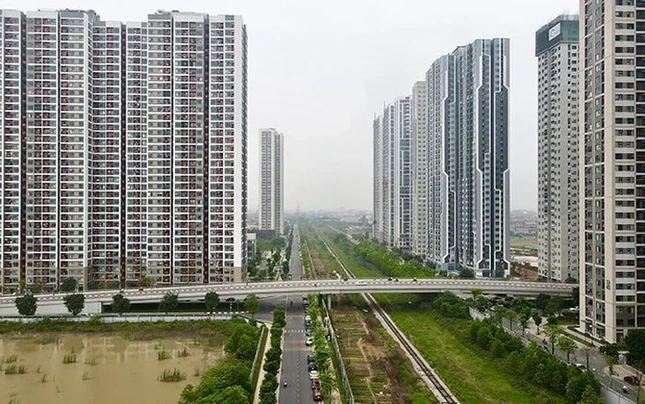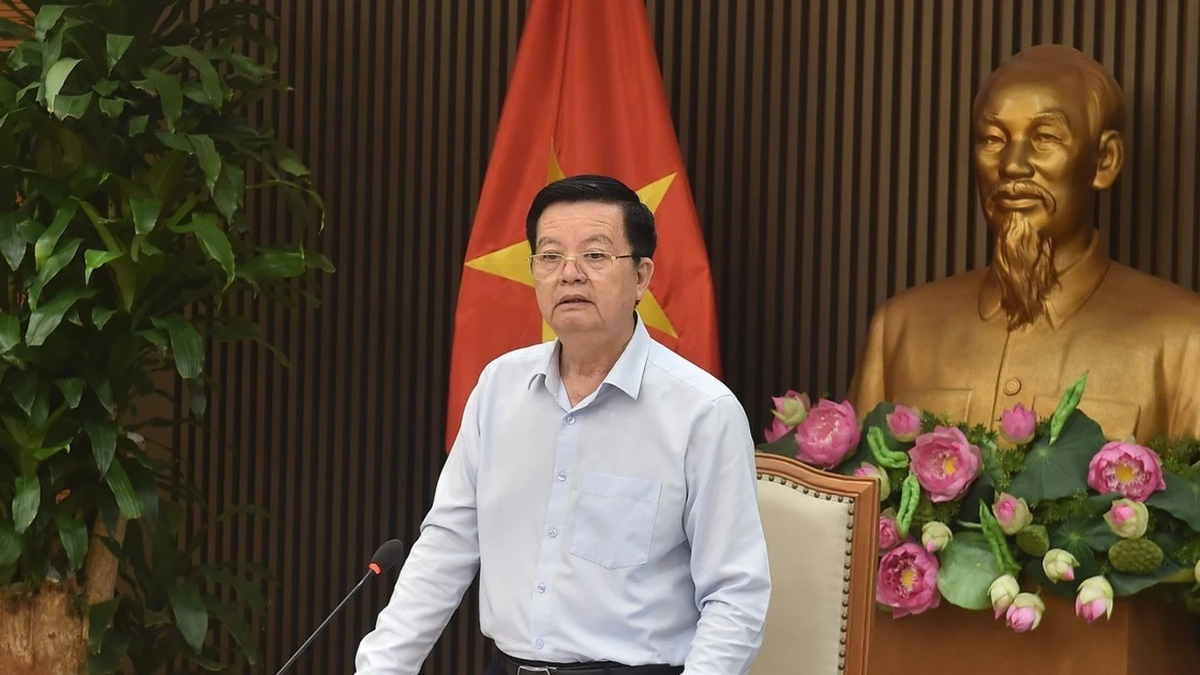Capital flows into real estate
Recently, preferential loan packages have been launched, targeting first-time home buyers and social housing projects, with the expectation of boosting liquidity for the market.
By the end of 2024, total outstanding real estate loans will reach about 3.2 million billion VND, accounting for nearly 21% of the total outstanding loans of the economy . Of which, credit for real estate business activities increased sharply by 18%, credit for housing needs increased by 6.5%.
Notably, foreign direct investment (FDI) has also shown signs of returning. In the first four months of this year alone, FDI registered in real estate reached 1.5 billion USD, equivalent to 26.9% of the total registered FDI capital in the country - this figure shows foreign investors' confidence in the market's ability to recover.
Mr. Nguyen Quoc Anh - Deputy General Director of PropertyGuru Vietnam - assessed that the market is currently placing high expectations on the policy of loosening credit loans for real estate purchases. Responding to the survey in the first quarter of 2025 by Batdongsan.com.vn, 67.1% of brokers placed their expectations on "Loosening credit loans for real estate purchases"; 47.9% of brokers placed their expectations on "Reducing taxes and real estate transaction fees"; 43.4% of brokers placed their expectations on "Speeding up legal progress". This year, credit growth is expected to increase to 16% and real estate loan interest rates are continuing to decline.
 |
Credit capital has been flowing strongly into real estate recently (photo: Nhu Y). |
Dr. Can Van Luc - chief economist of BIDV - emphasized that the market is entering a phase of "restructuring demand and capital sources". According to Mr. Luc, real estate businesses that want to survive must change their approach: developing segments with real demand such as social housing and mid-range apartments - instead of pursuing high-end projects but with difficulty accessing credit.
Targeting real buyers not only increases sales but also makes it easier to borrow from banks, which tend to prioritize projects with practical use value and low risk.
Be cautious with credit leverage
Economist Nguyen Tri Hieu said that the use of financial leverage is a popular tool in real estate investment, helping investors amplify profits. However, excessive use of leverage poses many serious risks.
Many investors borrow up to 70-80%, or even more, with the expectation of quickly selling or renting to pay off the loan interest. But in reality, the market is not always favorable. If the sale is slow, the rental is not possible, or the costs are higher than expected, investors will fall into a negative cash flow situation, the pressure of interest on the loan is piled up, and they face the risk of breaking the financial plan.
In times of low interest rates, bank loans may seem like the ideal solution. However, when interest rates start to rise (as they have in many countries in the wake of the COVID-19 pandemic), borrowing costs increase sharply, completely eating away at profits. With floating-rate loans, a 1-2% increase can add tens of millions of dong to monthly expenses.
"There is no guarantee that real estate will always increase in price. In some periods, especially after the market peaks, prices may go sideways or fall sharply. At that time, the mortgaged property may lose value compared to the outstanding debt, leading to negative equity - investors not only do not make a profit but also have more debt than the real value of the property," said Mr. Hieu.
According to Mr. Hieu, in addition to market factors, investors also face risks from government policies such as tightening real estate credit, changing land laws, and imposing property taxes. These factors can greatly affect the ability to exploit and liquidate assets. Loosening real estate credit does not mean that investment opportunities are wide open. In the context of the market gradually recovering, caution and the right strategy are the decisive factors for success for both businesses and individual investors.
Source: https://tienphong.vn/canh-bao-nha-dau-tu-roi-vao-tinh-trang-dong-tien-am-lai-vay-chong-chat-post1743105.tpo






















![[Photo] National Assembly Chairman attends the seminar "Building and operating an international financial center and recommendations for Vietnam"](https://vphoto.vietnam.vn/thumb/1200x675/vietnam/resource/IMAGE/2025/7/28/76393436936e457db31ec84433289f72)











































































Comment (0)